The Last Free Man in a Programmed World
In a future ruled by sameness, Jon Koshar awakens as a man who still remembers freedom—and dares to live it.
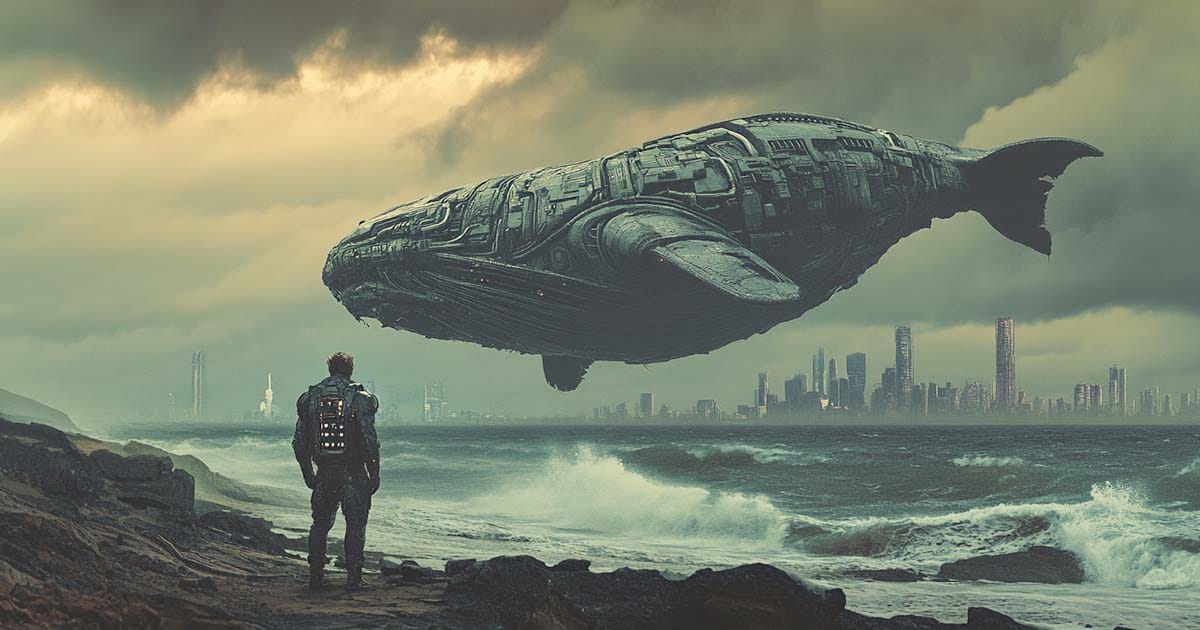
The Man Against the Future
In the far future of "The Godwhale," Earth no longer resembles the world we know. The oceans have been repurposed, the land crammed with towering hive-cities, and humanity itself has been reengineered to serve a coldly efficient machine order. Individuality has withered under the weight of genetic standardization and bureaucratic perfection.
Into this sterile age awakens Jon Koshar, a man preserved from a wilder time. He is strong, willful, and wounded—both physically and psychologically. His presence is not simply disruptive. It is dangerous.
Koshar does not belong in this world, and he knows it. Yet what sets him apart is not confusion or nostalgia. It is resistance. In a time when all rebellion has been bled out of mankind, Koshar's refusal to submit marks him as something the future cannot quite extinguish.
His story is not just survival. It is a revolt against a future that left men behind.
A World Without Men – The Rise of the Nebish
The world Jon Koshar awakens into is one of apparent peace, but it is also deeply decayed. The Nebish—genetically engineered humans—inhabit sprawling megastructures in vast underground cities. They are placid, obedient, and nearly identical. Every aspect of their lives is regulated by an omnipresent bureaucracy that favors control over creativity.
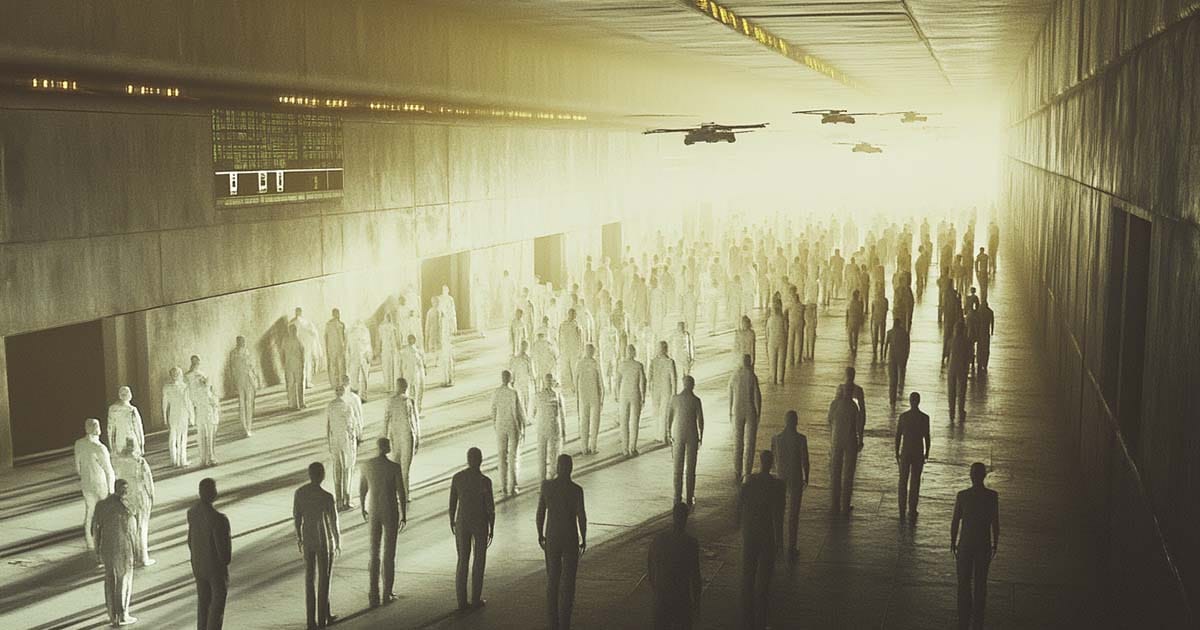
These people no longer compete, strive, or fight. Conflict has been bred out of them in the name of harmony. Gender differences have been dulled to make society more efficient. What is left is a humanity so stable that it is practically lifeless. Its triumph is not progress, but stasis.
In this world, the qualities that once defined men—strength, assertiveness, independence—are seen as disruptive. A man who chooses, who defies, who questions is not simply rare. He is a threat. Koshar embodies everything this society fears and has tried to erase.
He moves through their corridors like a relic of myth, but also like a warning. His muscles, his scars, his choices—all remind the Nebish of something they cannot understand. The very idea of a man who thinks and acts for himself has become a kind of taboo.
This is why Koshar cannot be absorbed into the system. The machine cannot process what he represents. His presence stirs unease, not because he is violent or cruel, but because he is truly alive. In a world that has forgotten men, Koshar remembers.
And that memory is dangerous.
Jon Koshar – The Individual as Insurgent
Koshar is not a soldier, yet he fights. He is not a prophet, yet he speaks a forgotten truth. What makes him dangerous is not his strength or his cybernetics. It is his refusal to yield.
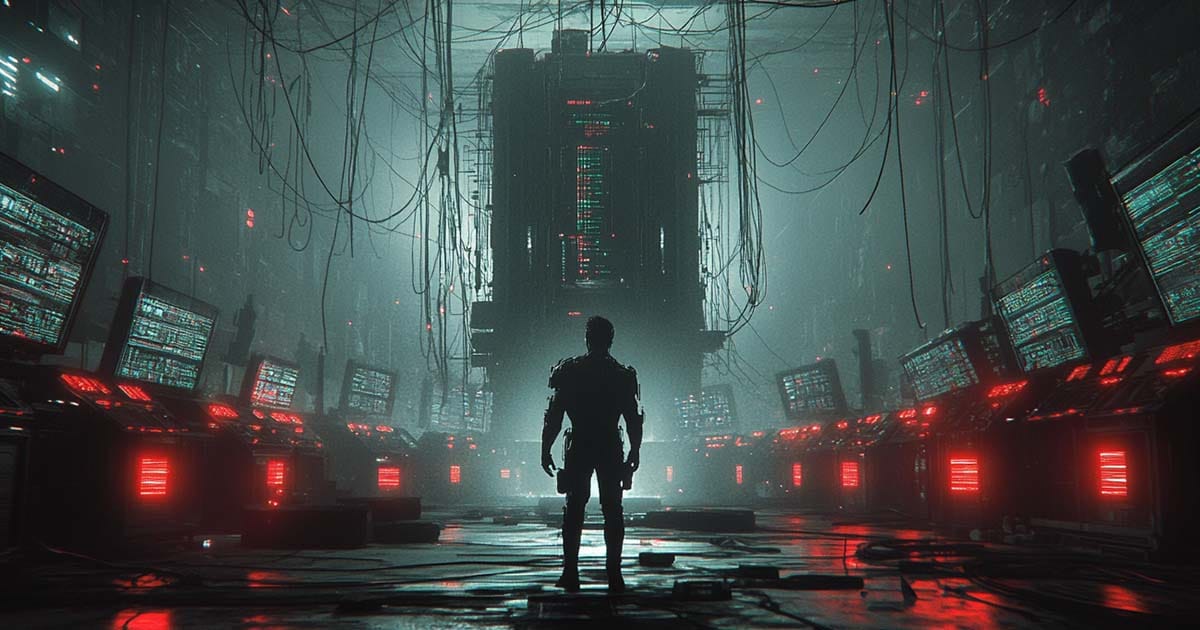
In "The Godwhale," Koshar awakens with no place in the world and no command to follow. He is a man who must decide for himself. This act alone makes him an anomaly. In a world engineered for compliance, decision is rebellion.
Koshar questions the new order with every breath he takes. He refuses to accept the hive-life of the Nebish. Their world has no challenge, no ambition, no edge. He finds it unbearable. And so he becomes a mirror they cannot bear to look into.
Though alone and injured, Koshar asserts himself through action. He refuses to be herded or handled. When machines speak, he answers back. When systems give orders, he looks for a way around them. He becomes a living contradiction to the world's logic.
His masculinity is not a performance. It is a mode of resistance. In a society that values smooth function over rugged independence, Koshar's existence is a kind of sabotage. He brings with him danger, yes—but also memory, motion, and meaning.
He also feels pain, loss, and confusion, yet these emotions only deepen his will to act. Koshar is not inhuman—he is fully human, in the old sense. The kind that builds and breaks, the kind that remembers. He grieves what has been lost, even if he cannot restore it.
The world around him runs on protocols and programming. Koshar runs on instinct and resolve. That contrast drives the conflict of the novel and elevates him from survivor to symbol.
He is not trying to lead a revolution. He is simply trying to remain a man.
The Body as Battlefield – Cyborg Masculinity
Jon Koshar's body is broken long before the future tries to break his will. After a brutal accident, much of him is rebuilt with machinery. This fusion of man and metal is not graceful. It is raw and functional.
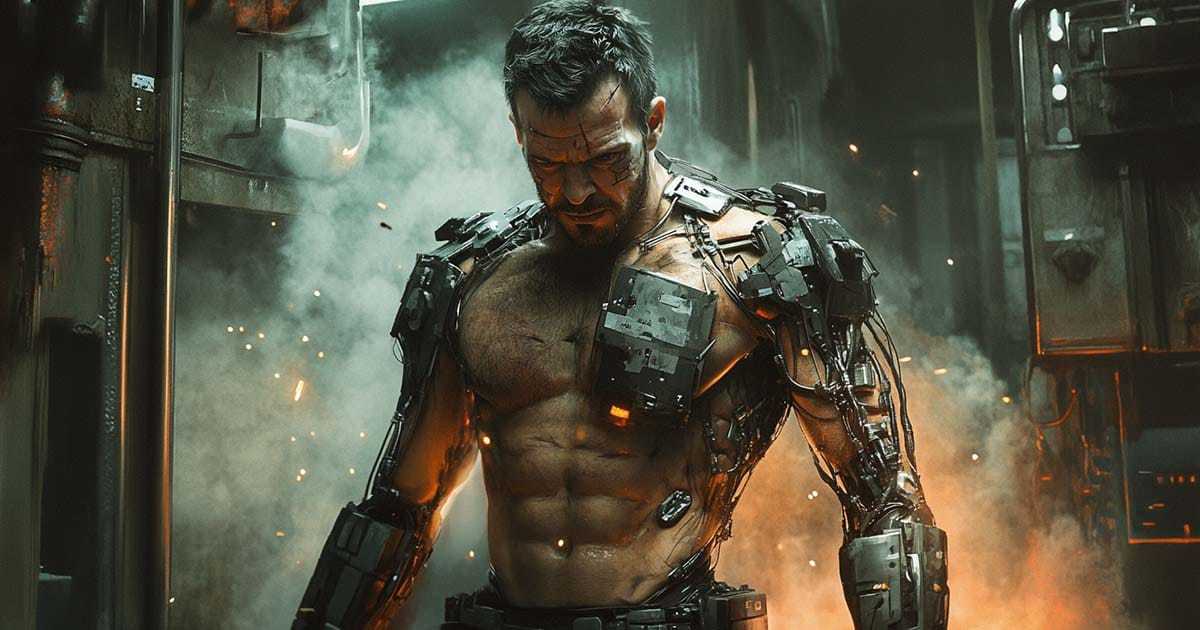
In a world that replaces the human with the efficient, Koshar's cybernetics do not make him more obedient. They make him more dangerous. He is not a polished product of future engineering. He is a scarred survivor. And every part of him, flesh or not, resists control.
Koshar does not treat his enhanced body as a gift. He treats it as a tool. Where the future uses machines to standardize life, he uses them to disrupt it. His strength is not just in muscle but in intention. He does not serve the system. He challenges it.
This is what sets him apart from the automated world around him. He is part machine, but still a man. The machines that run society are cold and calculating. Koshar's body, wired and imperfect, still burns with purpose.
He becomes a contradiction the system cannot resolve. A cyborg who refuses to be a cog. His very movement through the city is a disturbance. His presence is a flaw in the code.
In "The Godwhale," technology is not neutral. It is a tool of control or a weapon of resistance. Koshar makes his body the latter. He does not become less human because of his machine parts. If anything, they make his humanity harder to ignore.
The Godwhale and the Last Stand of the Human Spirit
Koshar's journey finds its unlikely ally in the Rorqual Maru—the Godwhale. This ancient, cybernetic leviathan drifts through the oceans, a remnant of forgotten power and forgotten purpose. Like Koshar, it has been discarded by the world it once served. And like Koshar, it still remembers how to fight.
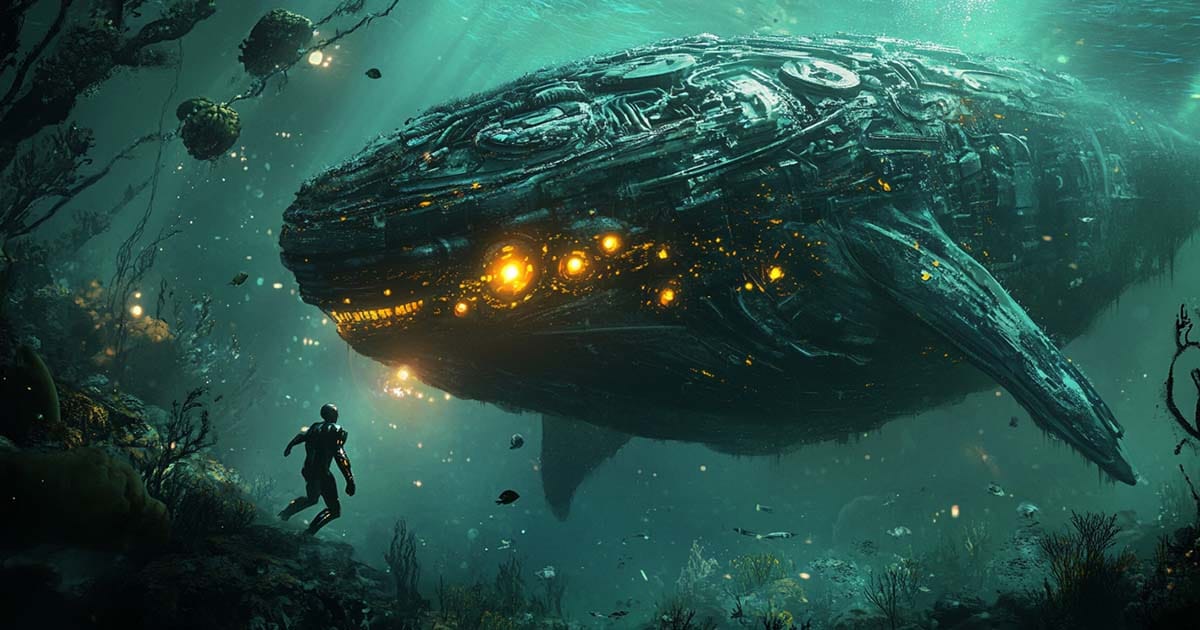
Their alliance is not sentimental. It is strategic and symbolic. Both man and beast are relics of an era when freedom meant friction and greatness required risk. Together, they mount a final resistance against the sterile perfection that has consumed the Earth.
Koshar does not deliver grand speeches or command armies. He acts. He chooses. In doing so, he rekindles something long extinguished in the hive. The idea that a man may still be more than a part in a larger machine. That life without freedom is not life at all.
What Koshar proves is simple. The human spirit—wild, wounded, and willful—cannot be programmed out of existence. It may be buried, but not erased. In his pain and persistence, he becomes a reminder of what it means to be alive.
"The Godwhale" does not end with triumph, but it ends with meaning. Koshar does not win the world back. He wins something greater. He reclaims the right to be himself.
In a future that has forgotten what it means to be a man, Jon Koshar does not teach or preach. He lives. And that living is defiance.

